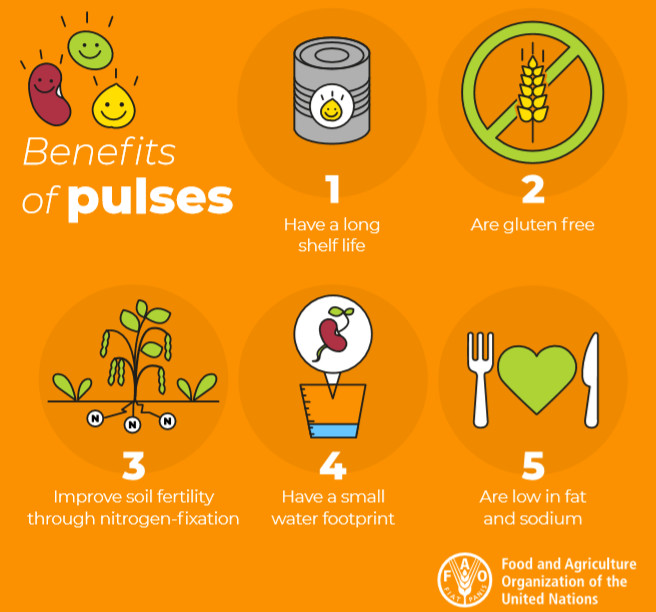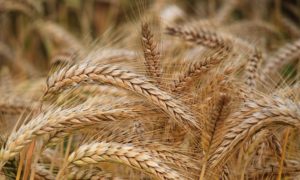Nouvelle
World Pulses Day 2021
About
In 2019, the United Nations General Assembly proclaimed 10 February as World Pulses Day.
Recognizing the value of pulses, a resolution was adopted on 20 December 2013 by the General Assembly proclaiming 2016 as the International Year of Pulses (IYP). The celebration, led by the Food and Agriculture Organization of the United Nations (FAO), increased public awareness on the nutritional value and environmental benefits of pulses as part of a sustainable food production.
Building on the success of the International Year of Pulses and recognizing their potential to further achieve the 2030 Agenda for Sustainable Development, with particular relevance to Sustainable Development Goals 1, 2, 3, 5, 8, 12, 13 and 15, Burkina Faso proposed the observance of World Pulses Day.
Importance of Pulses
Nutritional Value
Pulses are packed with nutrients and have a high protein content, making them an ideal source of protein particularly in regions where meat and dairy are not physically or economically accessible. Pulses are low in fat and rich in soluble fiber, which can lower cholesterol and help in the control of blood sugar. Because of these qualities they are recommended by health organizations for the management of non-communicable diseases like diabetes and heart conditions. Pulses have also been shown to help combat obesity.
Food Security
For farmers, pulses are an important crop because they can both sell them and consume them, which helps farmers maintain household food security and creates economic stability.
Environmental Benefits
The nitrogen-fixing properties of pulses improve soil fertility, which increases and extends the productivity of the farmland. By using pulses for intercropping and cover crops, farmers can also promote farm biodiversity and soil biodiversity, while keeping harmful pests and diseases at bay.
Furthermore, pulses can contribute to climate change mitigation by reducing dependence on the synthetic fertilizers used to introduce nitrogen artificially into the soil. Greenhouse gases are released during the manufacturing and application of these fertilizers, and their overuse can be detrimental to the environment.

The Role of Geneva
International Geneva
Food and Agriculture Organization of the United Nations (FAO)
The Liaison Office in Geneva (LOG) of FAO advises and assists in the development and implementation of FAO policies and decisions concerning enhanced FAO cooperation and partnerships with the UN system, between FAO and the United Nations and with other international organizations located in Geneva. It also serves as the focal point for relations with these organizations.
Local Geneva
Biovision
Biovision Foundation combats hunger and poverty, and is committed to the dissemination and application of ecological methods that sustainably improve living conditions in Africa whilst also conserving the environment. Biovision renders ‚help for self-help‘ and promotes ecological thought and action in both North and South.
Biovision is also committed to implementing Agenda 2030 for sustainable development in Switzerland and reduce its ecological footprint. Biovision is working on holistic solutions and promoting understanding of new behavioral patterns and in raising awareness about ecological development and sustainable consumption.

World Pulses Day
10 February 2021 | 13:10 – 14:30 (EST) | Online | FAO

Quiz sur l'alimentation
Online | Biovision Foundation
Resources
- World Pulses Day: on the trail of “Yakina” the bean | Federal Department of Foreign Affairs (FDFA) | 10 February 2021
- Plant-based diets crucial to saving global wildlife, says report | The Guardian | 3 February 2021
- Food system impacts on biodiversity loss | Chatham House | February 2021
- Taking pulses to a higher level | UNEP
- Recipes and cooking with pulses | Global Pulse Confederation

